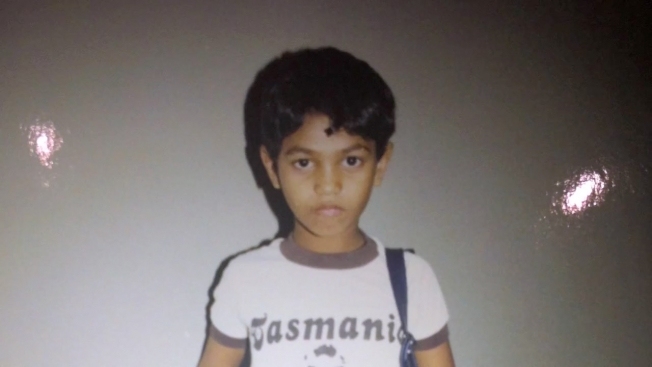Perfect or Interesting? Choose One.

Audrey Aiken
Thread Writing Director
Let me start by saying it’s not that I don’t wish other people well. I do. It’s just that I don’t find their well-being all that interesting.
I’ve seen enough life by now to know that behind every Facebook update of someone blissed-out on the beach is a two-hour drive with a spotty air conditioner, an itchy sunburn in that spot between the shoulder blades no human arm can reach, and an $87 snack shack lunch purchased after an epic fight over who left the cooler on the kitchen counter.
I kind of glaze over when someone tells me how beautiful Italy was or how cute their preschooler acted. It’s nice. I’m with you. Now tell me something interesting.

“Most positive experiences are wasted on the brain,” UC Berkeley neuropsychologist Rick Hanson says. Recently he told The Atlantic, “As our ancestors evolved, they needed to pass on their genes. And day-to-day threats like predators or natural hazards had more urgency and impact for survival. On the other hand, positive experiences like food, shelter or mating opportunities, those are good, but if you fail to have one of those good experiences today, you would have a chance at one tomorrow.” Even as we seek the comforts of perfection, our brains are scouring the landscape for flaws.
Think of interesting not as a gorgeous celebrity you’re dying to meet, but as a mild-mannered neighbor you later find out was an Olympic curler. Interesting hides in plain sight. It requires us to change the way we look at ordinary experiences, and alter what it is we’re looking for in the first place. Flawed, vulnerable and ridiculous? Interesting. Perfect? Predictable and forgettable. Interesting catches our attention because it teaches us something new, while perfect is the owner’s manual of a car we’ve driven for years.
If you want a crash course in this, YouTube some clips of Jerry Seinfeld or Louis C.K. These two are the elite special forces of interesting, routinely exposing their own flaws and failures. But you don’t have to be a stand-up comic to know what keeps a story or conversation interesting. Any preschooler with a degree in Disney knows to root for the orphan or misfit and not the pampered prince or powerful queen. There’s no such thing as a hero who hasn’t failed or stumbled along the way. Struggle is the universal currency that turns a hero into one of us, and vice versa.
We know on a gut level the kinds of things that make us laugh, tune in, buy tickets and turn pages. And yet when it’s our turn to be interesting, like lemmings off a cliff, we all compulsively Instagram our numbingly perfect waterfall hikes and new puppies. Our marrow-deep desire for the world to see us in the best light doesn’t make us bad people. It just makes us uninteresting. Which may not be such a big deal if you’re talking about two minutes spent tweeting the outcome of your child’s soccer game, but what if the stakes were higher?
Consumer brands routinely pay hundreds of millions of dollars to launch perfect balloons of shiny-bodied hero shots and over-the-top superlatives, only to watch them deflate on impact with consumers who couldn’t care less.
Many campaigns are all about broad-spectrum perfection: lots of splashing in pools and smiling children, lots of Ray Charles and it’s-a-small-world and backup singers, but zero about the actual problem the consumer is struggling with or how the product comes to the rescue. Take, on the other hand, Google’s true story of Saroo Brierley, lost in India at age 5, who found his family more than a quarter-century later using Google Earth. Those feelings you’re feeling? Symptoms of interesting.

Perfection reinforces the status quo, which is why market leaders embrace it, and why No.2 smartphone and cola brands should avoid it. But the latter rarely happens. It feels safer to copy your market leader’s advertising strategy, especially when it justifies a natural impulse to appear flawless. Market leaders don’t choose perfect because it’s the right thing to do, they resort to it when they have nothing left to say. The result for consumers is one big, fat boring marketplace overstuffed with brands trying to out-perfect one another.
Every market leader was once a disruptor, with the underdog’s burden of changing people’s minds. They did so not by being perfect, but by being interesting. In 1972, Southwest Airlines positioned itself as a scrappy upstart, instituting a “10-minute turn” that had pilots pitching in on cabin cleanup. In 1984, Apple elbowed its way into the PC monopoly with a Super Bowl ad where a heroine saves humanity from Big Brother. In 1988, Nike reversed a revenue slide with its first “Just Do It” ad, featuring an 80-year-old runner on a morning jog across the Golden Gate Bridge.
Weak against strong, good versus evil, underdogs, oddballs, long shots. These are the stories, and brands, we call interesting. Perfection isn’t just overrated. It’s obsolete.
